Hello! This is Everything Is Amazing, a newsletter that zooms in on curiosity, attention, and the brain-altering power of trying lots of different things for no immediately apparent reason.
If none of that makes sense, start reading from here, and I promise it will continue to not make sense except in a more joined-up way. Ta.
Today, let’s take a deep, nerdy dive into the delicious/disgusting science of…
Neon signs!
No, I kid. It’s coffee. Because last week I wrote this:
“Here’s a mystery about the taste of coffee: a fair few people like it, but in my experience, everyone loves the smell of it. I have met people who deeply hate drinking coffee, who find the stuff brackish and foul, and yet will twitch their nostrils above a freshly-opened bag of ground coffee and say, “ohhhh, that smells fantastic!”
But I thought taste and smell were basically the same thing (which is why you can’t taste anything if you hold your nose)? And just how different is the smell of coffee to the taste of it - and why is that?
Time to stop and investigate all this properly.”
A few of you immediately replied to say you were in the love-the-smell-hate-the-beverage camp. That’s not an unusual thing. Take this small and extremely unscientific study I did yesterday:
There is much potential bias here (eg. most people who follow me on Twitter are writers who travel a lot, so of course they love coffee; it’s only 49 votes; what, Twitter as a representative slice of the world? LOL; and so on).
But - look at the 0% there, which seems absolutely typical. I have never met anyone who can’t stand the aroma of coffee but happily knocks back the drink. So why is the reverse true?
Take the experience of my friend Eva, a food & travel writer (and budding novelist) living in Italy:
“I wanted so much to like coffee - it's what grownups drank, and I couldn't wait to be grown up. And it smelled so good - rich and earthy. Imagine my disappointment when, at 16, I had my first sip. Disgusting! I tried it a few more times in college when I pulled all-nighters, but each time the effect was the same. It didn't matter what I put in it - it always tasted horrible. I've always found that if someone looks and smells good, it will most likely taste good, too - that's how I got talked into eating organ meats when I lived in Japan, and I love organ meats. But I don't find this to be the case with coffee - at all.
How can something that smells so wonderful be so disgusting? It must be a trap!
I finally came out as a "Coffee Hater" in my early 20s and have remained proudly anti-coffee ever since. Why fight it? I also hate the taste of Coca Cola and never, ever drink the stuff - maybe it's related. I've lived in Italy since 2010 where coffee is sacred. I always decline it but sometimes I can't politely turn down an espresso and, nope, still hate it.
Every now and then I'll mention that I hate coffee and someone will inevitably say, "Even Italian coffee?" Yes, all coffee is hideous to me. And I'm okay with that.”
As far as my research has gone, around one in ten folk who like the smell of ground coffee beans can’t abide the drink they’re made into.
Note that this isn’t “I like coffee but it gives me terrible acidity so I tend to avoid it” (I’m one of those folk, so I have to be careful). No - these are people who feel the same way Eva does: “all coffee is hideous and you can’t convince me otherwise.”
So what gives?
First, some important basics.
As Candace notes in Stuff Every Coffee Lover Should Know, coffee “beans” come from inside the fruits of the coffee plant (they look like tiny cherries). Prise one open and you’ll find what looks like coffee beans, except sporting a rather offputting shade of bilious green-yellow.
This means they’re actually seeds. Or they’re fruit! Take your pick, either is fine. But they’re not beans. Except, everyone calls them beans, and there’s no way round that now and I’m not going to tell you to fight it. That battle is over. The idiots won.
The second surprisingly useful thing I learned from Candace’s book is that coffee is actually bread. Or rather, it should be treated like bread. And this relates to a nasty trick that has been played on grocery shoppers for decades.
You know that incredible fresh-bread scent in the bakery section of big supermarkets? That’s great physical marketing at work, because it never fails to reel you in - and yet it’s also exactly how your kitchen shouldn’t smell. At home, it’d be a sign your bread is losing all its volatile compounds and going stale a lot faster than it would if you sealed it away properly.
Coffee’s the same. Sure, that ground coffee smells fantastic right now - but that means it’ll taste worse when you brew it up. Potentially a lot worse. You’re smelling the flavour in your next cup leaching into the air, as volatile chemicals in the coffee oxidize and dissipate.
(Candace notes the Middle English root of the word “volatile” is “a creature that flies.” Says it all.)
So: once ground, treat coffee like a fresh loaf of bread. Three days shelf-life is pretty good, same day if you can manage it. No matter what preground bags promise (“all the flavour trapped within” blah blah, pull the other one), once those beans get ground, the taste falls off a cliff. As much as 60% of the most flavourful volatiles float away within just 15 minutes of grinding.
The upshot here: grind your own beans, or resign yourself to a relatively crappy cup of coffee every time.
Except, wait. I’m presuming you know how human taste works? Because in my investigations here, I discovered I absolutely didn’t.
What’s the tastiest thing in your house right now? Go get a bit of it. (Chocolate works a treat for this.)
Now - pinch your entire nose closed, front to back, the entire fleshy part of it including both nostrils, right back to where you feel the bone begin. Bingo! Your dose is dow incabable of sbellig adythig.
Now put that tasty thing in your mouth. Let it dissolve on your tongue. Bat it around a bit. Give it a chew.
Report?
There shouldn’t be much flavour (which is weird) but you’ll be getting something else that contributes to what we call “taste.” We don’t think about this often enough, but - why do we describe a taste as ‘silky smooth’ or ‘creamy’? They’re textures, right? And yet we include them in our everyday act of tasting stuff.
Now let go of your nose. POW. Immediately that flavour is back.
We tend to think of taste as a thing made solely in the mouth, but a lot is engineered in the back of the nose - more specifically, in olfactory receptors, special cells that send messages to the brain. Pinch your nose shut and you discover how important they are in tasting anything.
Okay. Now this gets weird.
It’s 2012, and at the British Science Festival in Aberdeen, Professor Barry Smith is speaking to his audience. As the founding director of the University of London’s Centre For The Study Of The Senses, he’s there to talk about taste - more specifically, how absurdly complicated it is:
“What we call taste is in fact the result of inputs from touch, taste and smell that combine into a single unified experience that we either like or dislike. The effects of one sense on another go unnoticed in our experience and yet finding out about these interactions is telling us more and more about how our senses combine information.”
That’s “like or dislike” as an immediate reaction. Our mouths are biologically wired to respond negatively to some tastes - in particular bitterness, which is often associated with poisons, toxins and other harmful stuff.
This is why your first taste of anything bitter (say, beer) is a hearty BLEARGH. You just can’t help yourself. To appreciate its “adult” flavours, you need to teach your palate to overcome this reaction, by way of tasting this “bad" thing again and again until its more rewarding side makes an appearance.
It’s the flavour equivalent of a masochistic-looking hobby that involves fighting all your natural instincts - like, say, running.
But then Smith explains this picture is even more confused by how those receptors in our noses actually work. When you’re smelling something, you’re wafting airborne chemicals over them in one direction: up your nose and into your face.
Yet when you’re tasting that same thing, you’re wafting those same chemicals out of your nose (because when you eat, you breathe out a little bit) over those exact same nasoreceptors. And for whatever reason, they work differently in this direction.
The message they send to your brain from a sniff is different to the one they send as you breathe out - even though the airborne chemicals triggering them are exactly the same.
You can test this for yourself, as I’ve been doing this week to the point of hyperventilation and sparkly vision. Get something that smells nice, pinch your nose, breathe in the smell through your mouth, close your mouth, let go of your nose and breathe it out. It’s a subtle difference, for sure - but when it’s part of what we call “taste” (which is really made of Actual Taste + Mouthfeel + Smell), there’s a big impact.
According to Professor Smith, almost every ingestible substance is like this. There’s always that difference, and for some people, it’s a difference they never learn (ie. force themselves) to overcome. It’s also presumably why things that smell nightmarishly awful like durian and century egg can actually be pretty tasty - and why we can stomach eating cheeses that smells like 6-month-old dirty laundry.
Weirdly, only two things have been found to taste exactly the same way they smell: chocolate (hooray!) and lavender (erm, ok - although I gather it’s pretty good in pound cake).
Okay then. In summary:
1) No, smell-loving coffee-haters, you’re not deranged. In fact, your senses may even be more sensitive and refined than everyone else’s! (It’s a crying shame you’re wasting them on a life without coffee, but each to their own.)
2) If you don’t like the taste of coffee, grimly consuming a few thousand cups of it over the next year should cure you of that nicely. Off you pop.
3) Yes, coffee tastes considerably worse than fresh grounds smell - where “worse” is defined by “the proportion of the aromatic chemicals originally in the just-roasted coffee bean”.
4) It’s not a bean, it’s the seed of a fruit. I know, I know. FFS.
5) Noses are duplicitious and twofaced and should never, ever be trusted.
6) Chocolate’s the opposite of noses. You always know where you are with chocolate. Pillar of the community.
Thanks for reading. I’m off to have a you-know-what.
Further Reading
“Home is A Mug Of Coffee” - Candace Rose Rardon, Longreads
“Why Does Coffee Smell Better Than It Tastes?” - Carian Thus, United Artists Magazine
Did Honoré de Balzac really drink 50 cups of coffee a day? The math says “Merde, Non” - Brendan Leonard
NEXT TIME: Curiosity & optimism (& why everything isn’t f***ed).
Images: Jason Leung; phil sheldon ABIPP; Aaina Sharma; CHUTTERSNAP.

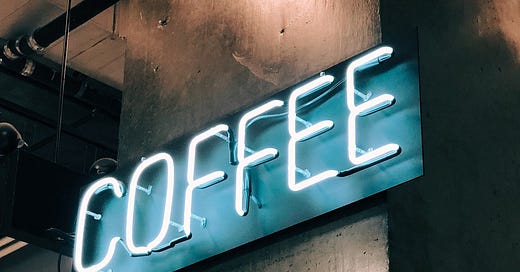



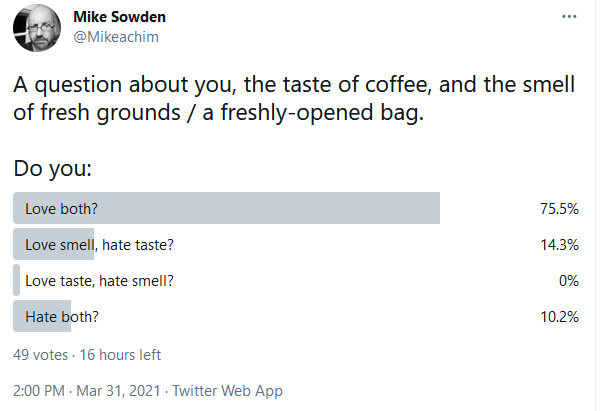


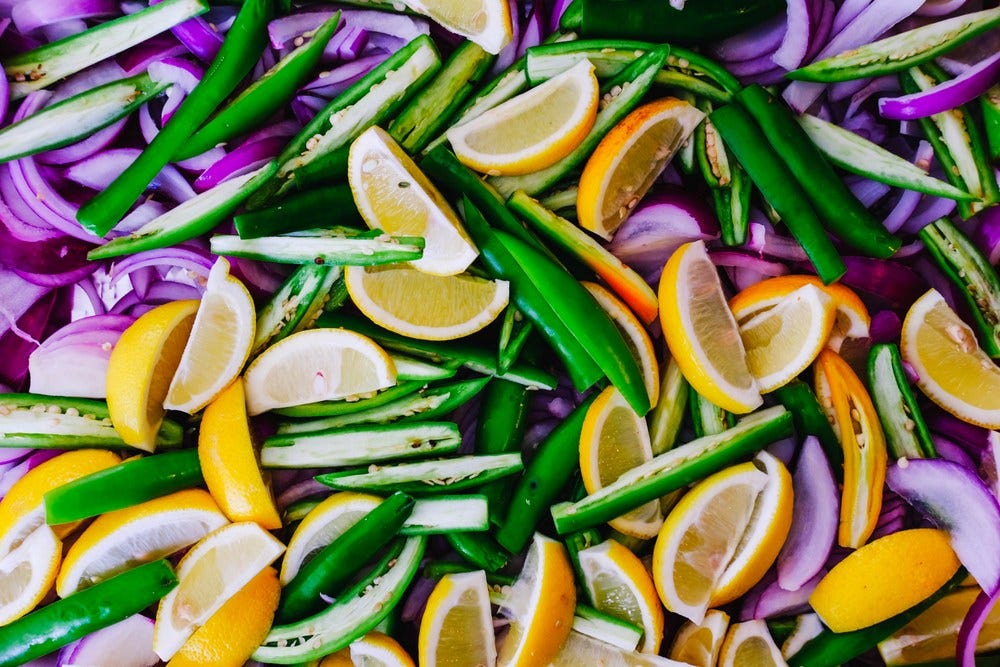
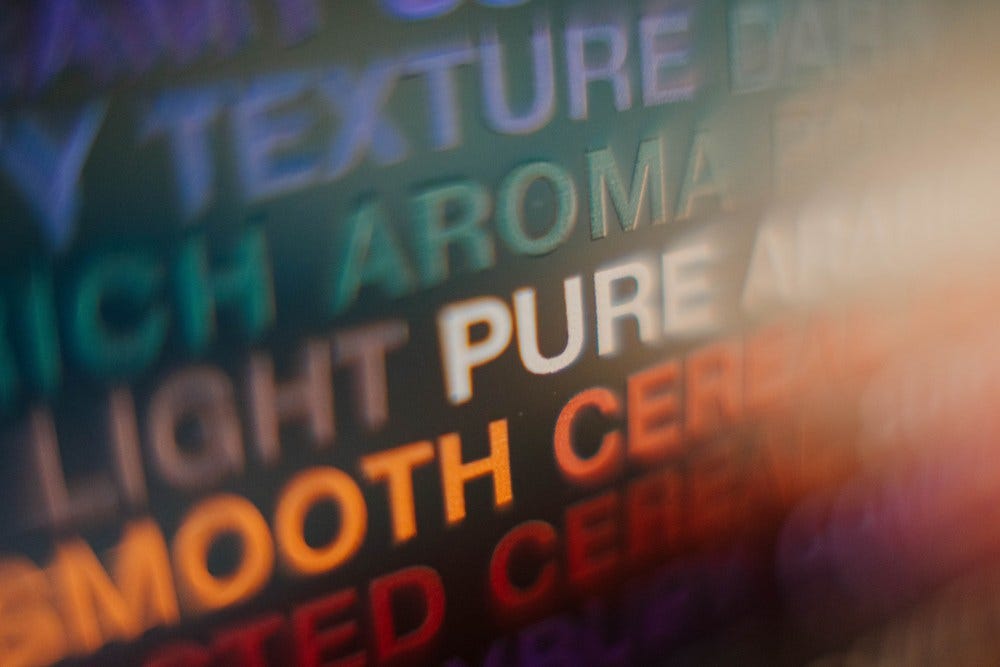
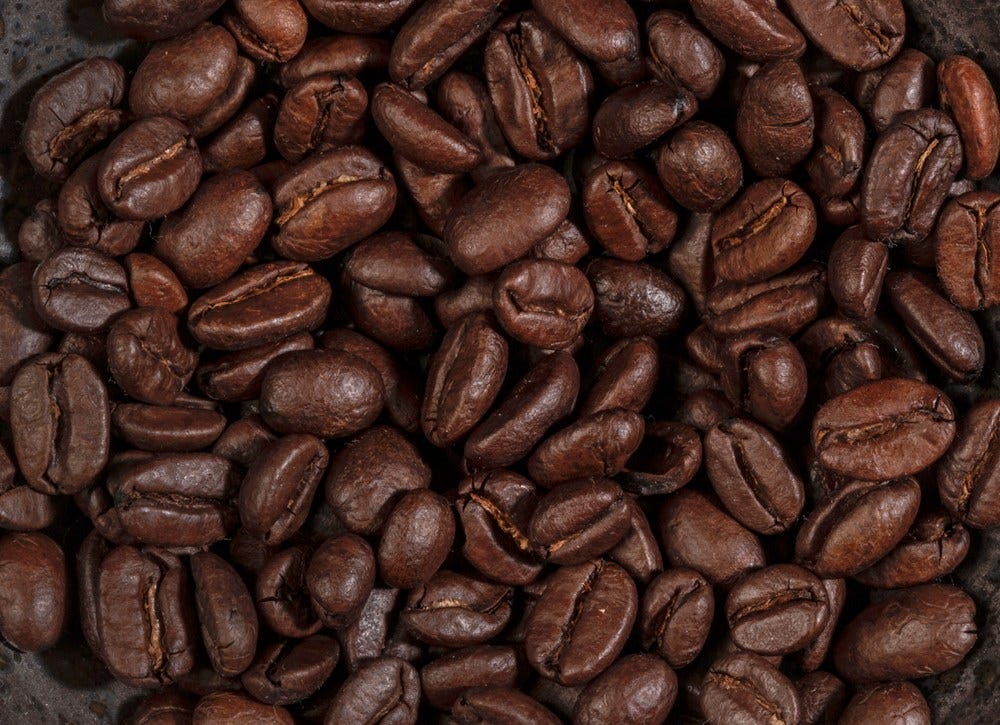
Ahhhh I instinctively knew I loved Eva when we met last year and this is just another reason why. I’ve never enjoyed coffee but like the smell of ground coffee. Helps with the approximately billion espressos I’ve made in Italy over the past 15 years.